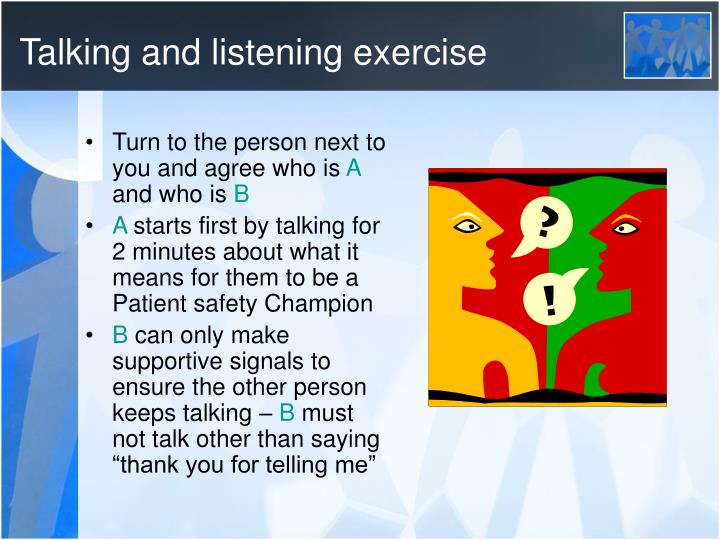
The communication of information is a two-way street - if you do not show them that you’re listening, they may cut their monologue short or become disengaged themselves, meaning that once again information is lost.

It is not enough to simply pay attention to someone if you don’t show them you are - do not risk them becoming disengaged! You to build a sense of urgency surrounding the topic. For example, agitated body language would imply that they are worried about what they are telling you, and therefore helps If you lose focus and begin forming an answer too early.ĭon’t forget to ‘listen’ to their body language, as this supplements and provides context to what they are saying. Replies and questions should come naturally once they have stopped speaking, as you are able to draw on all of the information they have provided rather than just a part of it, which you would be doing This is important as it means that you are not only focused on the subject at hand, but it also enables you to block out mental distractions.ĭo not interrupt or focus on formulating your reply. This means that you look at the speaker directly, blocking out any potential physical distractions that might be occurring around you.Ĭoncentrate on the message that they are conveying and try to understand what it is they are conveying to you.

ACTIVE LISTENING EXERCISES FOR WORK FULL
With this in mind, what are the steps to practice and internalise the art of active listening?įor active listening to truly be effective, you need to be paying full attention to the individual speaking and what they are saying. The biggest obstacle to listening is ‘glazing over’, or becoming distracted, active listening enables you to recognise and avoid doing so. The goal of active listening is to make a conscious effort to hear the complete message being communicated rather than simply hearing the words and relying on our minds to stitch the message together. So how do we tackle this apparent epidemic of information loss?Īctive listening is widely regarded as a tool for tackling the deficits we experience from regular listening. To having a 10-minute conversation, and the other party only remembers 5 minutes of the information at best.

If you think about it, this has some major implications both in and outside of the workplace. Research on this topic is diverse and varying in results, but the general notion is that we retain anywhere between 17% and 50% of what we hear. For something we regularly perform, one would expect that we would be good at it however, the reality is that we are in general rather poor at retaining information gathered through listening. However, it's quite often taken a little for granted that we are always listening. Listening is a skill we use constantly, whether that is during conversations at work, listening to the radio or for learning and obtaining information.


 0 kommentar(er)
0 kommentar(er)
